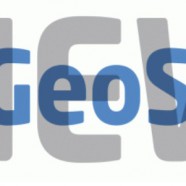Unconventional hydrocarbons (UHC) – The Polish experience in the European dimension
The conference “Unconventional hydrocarbons (UHC) – The Polish experience in the European dimension”, organized by the Polish Geological Institute, focused on providing experts with insights and analysis about the Polish experience with Unconventional hydrocarbons and how this experience may help to provide valuable direction for the future of the Energy Union. Mr. Verbruggen, President of EuroGeoSurveys (The Geological Surveys of Europe) and Director of the Geological Survey of Ireland, was invited to be part of the High Level Panel of speakers at event.
During its presentation, Mr. Verbruggen presented EuroGeoSurveys and its field of action, geosciences research, highlighting how EGS provides unbiased scientific advice to support EU policy makers and society at large. The estimation of shale gas resources in Europe still varies to a large degree since there are no production experiences and very limited exploration, leading to large uncertainties. This is the reason why the EU needs consistent pan-EU data sets and uniform estimation principles. A new EGS project “EUOGA”, in collaboration with the Join Research Centre (JRC) of the European Commission, led by GEUS and TNO, has the aim to mainly fill these “data gaps” by providing a comprehensive overview of current knowledge on Shale Gas potential areas in EU/EGS member countries. The project will develop a database for further collaboration and research.
Mr. Brodzinski, Under-Secretary of State and Chief National Geologist of the Ministry of Environment of Poland, gave a talk about UHC in Poland. By producing UHC, viable alternative for imported energy carriers, Poland is improving the country’s energy security and fostering the economic growth, competitiveness and energy efficiency. According to scientific research, it has been demonstrated that UHC are considered as viable alternative for Poland because they are environment-friendly source of energy, potentially feasible, and enhance energy security.
Mr. Kümpel, Director of the German Geological Survey, showed the results of the pre-exploration estimation for the shale gas potential in Germany. Germany is indeed dependent on the import of energy resources, and the significant potential of the shale gas would contribute to the long-term stability of energy prices. Despite this, one of the main issues is the skepticism of the public regarding the production of shale gas. In fact, overblown risk scenarios and inappropriate reports make bad “publicity” of shale gas. In conclusion, the State Geological Surveys and other expert groups face difficulties to find reasons for general prohibition of fracking, even if fundamental data (through position papers) help to defend it and arguments of climate protection in the context of energy transition speak in favour of fracking.


